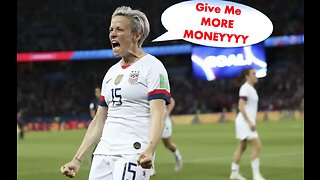"The Battle for Equality in Sports: Why Biden's Veto of the Protection of Women"
In a controversial move that has sparked fierce debate, the White House has vowed to veto the Protection of Women and Girls in Sports Act, which would prevent biological males from participating in women's sports. The bill, which was introduced by Rep. Greg Steube, R-Fla., is expected to come to a vote on the House floor sometime this week. However, if it does pass both houses of Congress, President Biden has made it clear that he will use his veto power to prevent it from becoming law.
The Protection of Women and Girls in Sports Act has been championed by conservative lawmakers and activists who argue that allowing biological males to compete in women's sports is unfair to female athletes and undermines the integrity of competition. They argue that biological differences between men and women give male athletes an unfair advantage in sports, and that allowing them to compete against women is a form of discrimination.
However, opponents of the bill argue that it is discriminatory against transgender individuals, who should have the right to participate in sports consistent with their gender identity. They argue that transgender individuals already face significant discrimination and exclusion in society, and that this bill would only add to their burden.
The White House has come down firmly on the side of transgender rights, arguing that the bill is discriminatory and unnecessary. In a statement, the White House said that "H.R. 734 would deny access to sports for many families by establishing an absolute ban on transgender students—even those as young as elementary schoolers—playing on a team consistent with their gender identity."
The statement goes on to argue that "schools, coaches, and athletic associations around the country are already working with families to develop participation rules that are fair and that take into account particular sports, grade levels, and levels of competition. As a national ban that does not account for competitiveness or grade level, H.R. 734 targets people for who they are and therefore is discriminatory."
The White House's position has been praised by advocates for transgender rights, who argue that the bill would only serve to further marginalize and exclude transgender individuals. They argue that allowing transgender individuals to participate in sports consistent with their gender identity is a matter of basic human dignity and equality.
However, opponents of the bill argue that it is necessary to preserve the integrity of women's sports and to ensure a level playing field for female athletes. They argue that allowing biological males to compete against women is unfair and undermines the spirit of competition.
The battle over the Protection of Women and Girls in Sports Act is just the latest front in the ongoing struggle for transgender rights and equality. Transgender individuals continue to face discrimination and exclusion in many areas of life, from employment to healthcare to housing. The fight for equality in sports is just one aspect of this broader struggle, but it is an important one. Subscribe for more content like this.
As the debate over the Protection of Women and Girls in Sports Act continues to rage, it is clear that there are deeply held and conflicting beliefs on both sides. However, one thing is certain: the fight for equality in sports is far from over. Whether the bill passes or not, the battle over transgender rights in sports will continue, and the outcome of this struggle will have far-reaching implications for the future of transgender rights and equality in America. Critics of the bill argue that it is discriminatory and would hurt transgender individuals by denying them the opportunity to participate in sports consistent with their gender identity. They argue that such laws are not only unjust, but they also ignore the scientific evidence that supports transgender individuals' right to participate in sports.
Advocates of the bill, on the other hand, argue that allowing biological males to compete in women's sports would be unfair to biological females who may lose out on scholarships and opportunities to compete at higher levels. They claim that transgender individuals have an inherent advantage due to differences in bone structure, muscle mass, and other physical characteristics.
The debate over transgender participation in sports has been a contentious issue in recent years, with many states enacting laws that restrict transgender individuals' participation in sports. However, the federal government has yet to take a definitive stance on the issue.
The White House's statement comes as a blow to supporters of the bill, who had hoped that it would garner enough support to pass both houses of Congress. With President Biden promising to veto the bill should it make it to his desk, the prospects for the bill's passage appear dim.
Despite the setback, supporters of the bill are vowing to continue their fight to protect women's sports. They argue that biological females have a right to compete on a level playing field and that allowing biological males to compete in women's sports undermines that right.
Critics of the bill, however, argue that it is a thinly veiled attempt to discriminate against transgender individuals and that it ignores the scientific evidence that supports transgender individuals' right to participate in sports.
The debate over transgender participation in sports is likely to continue, with both sides firmly entrenched in their positions. However, as the issue gains more attention and awareness, it is possible that a more nuanced and inclusive approach to transgender participation in sports will emerge. Until then, the fight for fairness and equality in sports will continue. Opponents of the bill argue that it discriminates against transgender athletes and violates their civil rights. They contend that transgender athletes should be able to participate in sports based on their gender identity, not their biological sex.
The issue of transgender athletes participating in women's sports has been a contentious one in recent years, with several states passing laws to limit or ban their participation. Advocates for transgender rights argue that these laws are discriminatory and harmful, while supporters of the restrictions say they are necessary to maintain a level playing field in women's sports.
The White House's decision to come out against the Protection of Women and Girls in Sports Act reflects a broader effort by the Biden administration to advance LGBTQ rights and push back against policies that discriminate against transgender individuals.
In February 2021, President Biden signed an executive order directing federal agencies to interpret Title VII of the Civil Rights Act of 1964 as prohibiting discrimination on the basis of sexual orientation and gender identity. The order also directed the Department of Education to review and possibly revise its regulations to ensure that they prohibit discrimination on the basis of gender identity in schools.
The White House's statement on the Protection of Women and Girls in Sports Act echoes this sentiment, calling on Congress to focus on issues that affect families and students, rather than discriminatory policies that harm vulnerable communities.
"Discrimination has no place in our nation's schools or on our playing fields," the statement said. "Instead of addressing the pressing issues that families and students face today… Congressional Republicans have instead chosen to prioritize policies that discriminate against children."
It remains to be seen whether the Protection of Women and Girls in Sports Act will pass both houses of Congress and reach President Biden's desk for a veto. However, the White House's statement on the issue makes clear the administration's stance on transgender rights and its commitment to protecting vulnerable communities from discrimination. Thanks for watching, subscribe our channel for authenticity.
-
 8:26
8:26
KWR Sports
1 year agoUS Gender Clown Women's Soccer GETS DOMINATED By RETIRED Men's Team
582 -
 5:56
5:56
KiiingDal225
1 year agoTransgender Athletes Are Dominating Woman's Sports.
59 -
 15:16
15:16
Crowder Bits
1 year agoEQUALITY?!: Women's US Soccer Team STEALS Money from Men! | Louder With Crowder
3.1K26 -
 58:13
58:13
The Steve Noble Podcast
1 year agoProtecting Women's Sports!
186 -
 0:34
0:34
Ron DeSantis
1 year ago"Real Men of Women's Sports"
33.5K65 -
 45:52
45:52
LitesOfTheRoundTableTV
10 months agoKeep Women’s Sports Fair
8602 -
 3:24
3:24
ArticulateThinker
9 months agoKarine Jean-Pierre rambles in response to question on Title IX & males competing in Women's Sports
2 -
 2:34
2:34
Get Ready To Laugh w/ K-von
1 year agoWomen's Soccer Demands More Money but Can't Beat Men (host K-von)
615 -
 0:53
0:53
Mr Producer Media
3 years agoWomen's Soccer Player: Banning Transgender Athletes from Women’s Sports Upholds White Supremacy
56529 -
 0:58
0:58
Cosmicjunkie TV
1 year agoDo transgender women athletes have an unfair advantage in sports?
10